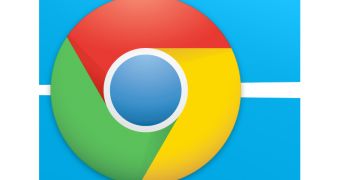With Mozilla breaking the ice, Google just realized that it too is not OK with Microsoft making it impossible to create a full-fledged browser for Windows 8 ARM tablets. And, now that it's thinking about it, it's not happy.
"We share the concerns Mozilla has raised regarding the Windows 8 environment restricting user choice and innovation," Google said in a statement, commenting on Mozilla's stance.
"We've always welcomed innovation in the browser space across all platforms and strongly believe that having great competitors makes us all work harder. In the end, consumers and developers benefit the most from robust competition," it said.
Of course, having Google come out on the issue before Mozilla would have been nice, but the company's got its own monopoly issues to contend with.
But even putting its weight behind Mozilla is a big step, its words may be dry, but the fact that it said anything at all speaks more than what it actually said.
Microsoft, for its part, hasn't said anything yet. It's unlikely that it will too, unless the issue doesn't go away by itself.
There's not much it could say, either, unless it decides to change its strategy with Windows 8 for ARM all Microsoft could say that its decision has the user in mind, that it can't be sure that third-party developers are going to create quality apps that don't take away from the experience Microsoft is trying to create on tablets.
Microsoft probably couldn't change much this late in the game, even if it wanted too. The fact that IE and other Microsoft apps take advantage of the win32 API doesn't mean that access to it is a good idea or that Windows on ARM is as polished as the desktop version.
Having full compatibility for the win32 API on ARM is a big undertaking and one that doesn't come with too many advantages, at least not for now when the only devices to run Windows 8 for ARM, or Windows RT as it's known, are tablets.

 14 DAY TRIAL //
14 DAY TRIAL //